I saw a really excellent play last Saturday – The Witness, by Vivienne Franzmann. I see a lot of plays, and this was one of the best I’ve seen recently. Playing at The Jerwood Royal Court Theatre, the play is brilliantly acted by the three actors who comprise the cast.
Writers can often learn things from good plays, and The Witness was no exception.
First of all, an outline of the story…
The play was an unravelling of secrets and lies – first one secret was revealed, then another, as the close bond between Joseph (Danny Webb), a dedicated photo-journalist who’d turned wedding photographer, and his adopted daughter, Alex (Pippa Bennett-Warner), was slowly broken down.
Alex, 19 at the time of the play, had been plucked as a baby by Joseph from the aftermath of a Rwandan massacre, and she’d been brought up by him and his now deceased wife. As the play opens, she’s just returned to their Hampstead home after dropping out in her first year at Cambridge University. The third character, Simon (David Ajala), Alex’s brother, whom she hadn’t known existed, appears after the interval. It’s the first time he’s met her since the massacre.
Simon has an agenda that is at first hidden, but increasingly less so, and before the play ends, two secrets are revealed which shake the foundations of the lives of both Alex and Joseph.
Well, that’s enough about the story – I wouldn’t want to spoil it for you, should you be lucky enough to see it at some point.
So now, a couple of things that writers might take away from this excellent play.
1) The only scene was a sitting room in Hampstead. The intimate auditorium framed the stage and was furnished like an extension of the sitting room. At the same time, the tiered arrangement of the audience seating conveyed the feeling of being in a courtroom. We were simultaneously witnesses to two tragedies – one personal, one public.
Just as the enactment of the drama was framed in such a way that enhanced the dramatic revelations, so, too, should novelistic framing devices, such as prologues, be relevant, They should heighten the reader’s enjoyment and perceptions, otherwise they are just gratuitous and distracting.
2) The naturalistic script was the perfect vehicle for Alex’s sense of fun, sensitivity and perception, and for Joseph’s humour and educated cynicism. Not a word or a phrase jarred; not a word or phrase was superfluous or wasted – the dialogue perfectly matched the character, and helped each character to peel away his or her different layers until the core lay bare.
In the same way, the dialogue in our novels should reflect the varying cadences and idioms that people use, and conversations should always have a purpose. They should never be there for the sake of filling a few pages or reaching the word count for the day. Just as actors are limited to a certain extent by their script; so, too, are the characters on the pages of our novels. If we give them one-dimensional dialogue, we will create one-dimensional characters.

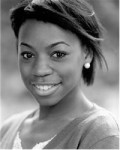
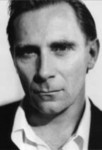
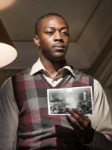

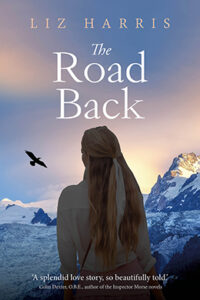
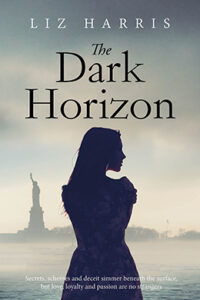
When writing dialogue, do you find yourself actually speaking it aloud?? While I don’t write fiction, when writing for talks,speeches, lectures, etc I would always try it “out loud”. You get some funny looks sometimes, depending on your choice of practice venue.
I always found it helped with getting the rhythm and cadence right, though.
Yes, I do, John. Not all of it, and not very, very loudly, but I do read most of it out loud. Before I even write it, I say it through in my head. I can’t imagine what the neighbours must think when they walk by and I’m declaiming in an empty room…
Good advice, Liz, though I will leave applying it until the second draft, when I can focus on differentiating between the characters and judicious pruning to allow enough dialogue to help establish the characters and cutting out the padding!
Glad you didn’t go too far with the spoiler (not that I’m likely to get to see the play, but you never know).
Thank you for your comment, Philip.
I remembered about spoilers – when I wrote about the final episode of ‘Homeland’, I realised too late that I’d given away a little too much about the ending.
Whatever method one chooses with dialogue – saying it aloud or in your head, after the first draft or the second – I think it’s essential to get it right. Characterisation comes from what a character does and says. Having said that, I suspect that the dialogue in ‘Fifty Shades of Gray’ falls somewhat short of the ideal, and it hasn’t exactly harmed the sales of the book!
Always good advise Liz! I love it and thus far, I’m already doing all the things that you suggest. Just hope it works for the publishers. I do try not to waste a word and, after a suggestion made by an editor to cut out a main third character, I managed to cut my original completed ms down by nearly 25,000 words! Hard work, but she was absolutely right. It’s a much tighter and better paced story because of it.
As for 50 shades…hmmm…read the first chapter and not sure I’m going to read more. Doesn’t really seem to be my thing. Is it okay to say such things???
Many thanks for taking the time to comment, Wendy.
The editor must have really liked your ms and seen promise in it to have given you such precise advice – editors just don’t give detailed advice to mss they don’t think show sufficient promise. How very encouraging for you.
I love editing. As you’re finding, it’s tremendously satisfying to feel your novel improving beneath your fingertips as you tighten the original text and cut out what isn’t needed.
Good lyck with the ms. I look forward to hearing how you get on whenn you send it out into the big, wide world.
Thanks Liz. Kind encouraging words. It’s what I need at the moment…feels pretty scary out there!
Sounds like an interesting play Liz-you are lucky getting to the theatre so frequently! We used to go a lot pre-children, but I’m sure we’ll get around to going again as they get older. I like the way you tied in observations from the play with writing novels in your post. Prologues come up for discussion quite a lot in writing classes and on blogs. And you make a good point about conversations- I made that mistake in my first draft with conversations about all sorts of irrelevant rubbish which I’ve since taken out!
Thank you for commenting, Anita.
You should hear Julie Cohen on Prologues! She really doesn’t like them, and then she had to do one for a novel.
I think that at times, they’re needed; at other times, they can be more of a trailer for the book that’s to follow, and I’m not sure that boooks need in-built trailers. The opening of the novel itself should be the thing to hook you.
PS. The Road Back has a Prologue!
PPS. I’m off to the theatre again on Saturday – to The National to see Julie Walters. Then I’m having a break as I’m off to Italy and then to Wyoming.
Good post, Liz, thanks. I don’t mind prologues, as long as they serve a purpose – even if that purpose isn’t revealed until the end of the novel. And I love writing dialogue – shall take a longer look at what my characters say, though.
Many thanks for your comment, Bex. Yes, I think that your qualification, ‘as long as they serve a purpose’, is crucial. If they don’t, they shouldn’t be there imho.
I think I like to “see” the dialogue spoken, as well as hearing it, too – I reckon that is what some playwrights and script writers must do. It helps to be aware of expressions on faces and body language… Or perhaps I’m just weird?
Not weird at all. I absolutely agree with you. Unless I’m weird, too!
Thank you for your comment, Susan.
This is so very interesting, Liz and I shall try not to be too jealous over your theatre attendances! I particularly appreciated your comment on dialogue. Prologues in novels do seem to exercise a lot of people. Victoria Hislop uses one in The Thread, which I’m currently reading, and I think it works well. One of those points on which the jury will always be out? I hope you enjoy your travels – it all sounds delightful x
Thank you very much for your comment, Sandra. Yes, I think whether or not a Prologue works depends entirely upon the nature of the book.
I wouldn’t recommend last Saturday’s play – The Last of the Haussmans, with Julie Walters. It was very disappointing. Even footie on the TV would have been better!